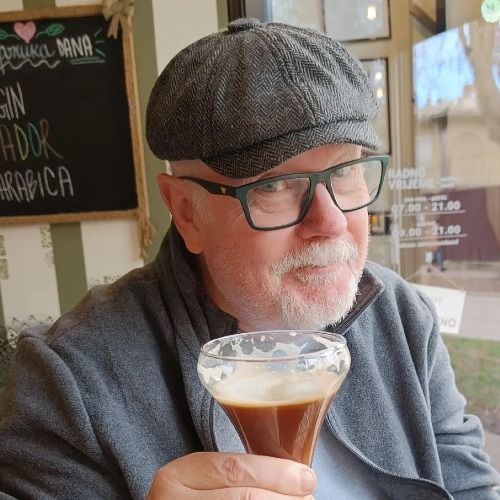full
Traditional Folklore Dancing in Bosnia and Herzegovina
Hello and welcome to the living in Bosnia and Herzegovina podcast. A podcast that tells stories from this much misunderstood country. In today's episode, we'll be finding out more about folklore, and in particular, traditional dancing. Back in 2019, I became aware of a young lady from South Holland, who had been dancing with a folklore ensemble in the nearby city of Banja Luka. She was at that time starting to make a film about Bosnian folk dancing, because she felt that these traditions might be starting to disappear, and she wanted to preserve that experience for future generations. So in the COVID world of early 2021, I have caught up with Efie Derksen to find out more.
David:
Efie, you're in the Netherlands, I'm here in Bosnia and Herzegovina. I bumped into you quite randomly on the internet, and I thought, "What an amazing story." So we've never really met in real life. So if we did, my first question to you would be, "Who is Efie?"
Efie:
Yeah, that's a good question. I am very jealous because you are there. I miss it so much to be in Bosnia. But, I'm Efie, I'm a Dutch woman and there is no genetical link with the former of Yugoslavia, but for me it's something I grew up with. So it was in our home. We always listened Balkan music. And first, your question, who is Efie? I'm a lot of things. I'm a nurse, and I'm making a from my heart. I'm not a filmmaker. So it's just something that I wanted to do, to preserve what we can find now.
David:
I read a little bit about you, and you said that your parents are both from the Netherlands, were into folklore themselves. But they met not in the Netherlands, I understand, but somewhere close to here as well.
Efie:
Yeah, it's true. They met in Hungary. My dad is a musician, he always was, and he loved music from the Balkans. It was just that feeling, and the new music, and the songs. So he would travel to the Balkans to learn from the musicians there. And my mother was a folk dancer, and in that years, I'm talking about '70s early '80s, I don't know. It was very popular in Holland to do folk dancing. So there were courses, and she went to a course in Hungary. There was just like a folk festival, and my dad also was travelling there, and he came to play, and she came to dance, and then they met like two Dutch people and the one folk festival in Hungary, so it's funny. Yeah.
David:
What made you want to come to the Balkans, and in particular Bosnia and Herzegovina. Today for example, we're talking about the wonders of the country, and yet I was just before talking to you, dropping in on a seminar to try and encourage tourism, and to try and encourage visitors to come here, and it's been an uphill struggle, always is, and always has been an uphill struggle. What made you want to come to this country? This very misunderstood country in Southeast Europe.
Efie:
Well, in the first place, I had the culture in my heart. The songs, and I never was interested in... Well, I was interested, but I never cared about the war stories, because I think that's a big problem. People still think like, "Is it safe going to Bosnia, or Serbia because of the war?" But I think for me, it's the people that I come for. They are so open, and loving and in particular Bosnian people. Because I think in history, they were always the ones in the middle. They were always the ones that people came to attack, or how do you say it? And I think they are more vulnerable, I guess, they are more open. They are more warm. You feel at home when you come there, it's just the second home, and they embrace you.
Efie:
And even after all those crazy things that happened in that country with all those ethnic groups, they are just still open. And beside that, when people come, maybe the first thing they need to know, it's a beautiful country. It's beautiful nature. It's beautiful. The food is really... I see you are very lucky. You can eat a...
This is a public episode. If you'd like to discuss this with other subscribers or get access to bonus episodes, visit www.coffeeandrakija.com/subscribe

